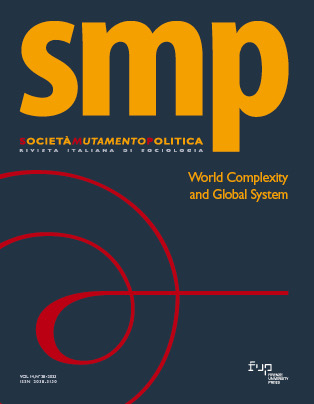Published 2023-12-23
Keywords
- complex vs complicated systems,
- simulation of participation,
- elimination of error,
- self-organization,
- emergence
How to Cite
Copyright (c) 2023 Piero Dominici

This work is licensed under a Creative Commons Attribution 4.0 International License.
Abstract
The temptation to find a working formula for transforming society into a highly regulated, sustainable world-system does not take into account two extremely relevant and interwoven aspects of reality, which can be understood by probing the deeper meaning of these two words: democracy and complexity. Beginning with what is arguably the most mysterious term of the two, complexity, the first point that must be clarified is that “complex” and “complicated” systems are diametrically different: complicated systems are man-made mechanical/artificial systems and as such are controllable, predictable, and possible to break down into their smaller parts. All living systems, instead, are complex, thus the exact opposite: uncontrollable, unpredictable, and impossible to break down into their highly dynamic, interconnected, and interdependent parts. If this sounds familiar, it may be because this is also a passable description of democracy. Complex systems, including democracies, therefore, are made up of an exceedingly large number of smaller, interactive subsystems, or subunits, arranged hierarchically, where the changes “from below” among smaller sub-units trigger changes in higher levels of units, changes which will affect the entire system and its interactions with other systems and with the environment, giving rise to self-organization and emergence. Social transformation is no exception: it must also begin from bottom-up events, from single individuals or grassroots communities, never from a top-down, hetero-directed imposition, even when this is attempted with the noblest of intentions.

